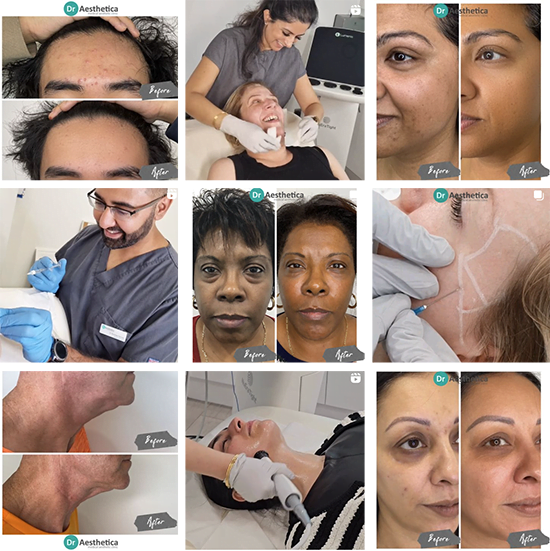Ageing can be hard or easy, depending on how you deal with it.
It is one of those inevitable facts of life.
Once you begin to age, so does your skin.
In order to prepare yourself for the skin ageing process, you need to know how the process works and what you can do to keep your skin looking its best as you age.
Here are some tips that you are sure to find beneficial.
1. Factors That Affect The Skin Ageing Process
The skin is the largest organ in the body, as such it gets a lot of wear and tear.
Over time it is exposed to sun, wind, rain, and habits you may have that are not friendly to it.
The fact is, how fast or how slow your skin ages is somewhat within your control.
If you smoke you are exposing your skin to free radicals that will destroy your skin cells and lead to wrinkles.
Excess alcohol is also bad for your skin and can increase your chances of ageing more rapidly.
Other factors that may contribute to your skin's ageing is your level of stress as well as the amount of excess weight you are carrying.
You should also be careful how you expose your skin to the sun, since this can cause severe ageing.
2. Skin Changes That Occur As You Age
As your skin ages, it is likely to become rougher, looser and lose its elasticity.
Ageing skin also becomes fragile skin. This is the result of the flattening of the layer where your epidermis meets your dermis.
Due to thinning of the epidermis your skin will also become more transparent and easier to bruise.
Ageing also causes a loss of fat below the skin in the cheeks, chin, and nose and this can cause a skeletal look in the face and sunken eyes.
Once you get into your sixties, you may also see some bone loss in the area around your chin and mouth and this can cause puckering.
Many women and now men begin using dermal fillers to counteract this effect.
While all of this may sound depressing, later we will look at the changes that occur by decade and examine how you can slow down the ageing process.
3. The Three Most Important Things You Can Do For Your Skin
The three most important factors for your skin's survival as you age are:
- Diet
- Exercise
- Sun exposure
Let's take a closer look.
Diet
There are certain foods that help to enhance the look of your skin. These are known as "glow" foods.
Here is a list of them:
- Avocadoes
- Spinach
- Raddish
- Broccoli
- Eggplant
- Oranges
- Lemons
These foods help to maintain your skin's youthful and radiant glow as you age.
Exercise
Exercise increase blood flow to the skin which results in your cells being nourished.
Blood flow also gets rid of waste products and free radicals that damage skin cell.

Sun Damage
Sun damage is one of the most detrimental things that can happen to your skin.
The ultraviolet rays from the sun actually damage the elastin in your skin. When elastin breaks down the skin begins to sag and lose its elasticity.
Sun damage will often not show when you are young but as you age it will reveal itself.
Damage that is done to your skin from the sun is nearly impossible to erase.
It is important to wear sunscreen and to cover up whenever possible from the sun.
4. What You Can Expect By Decade and How To Curb It
Here is a look at what you can expect from your skin in different decades of your life.
In your 20's
These are the glory days of your skin. It's supple and smooth, even if you still suffer from bouts of acne you can use retinoids to help control your outbreaks.
The most important thing you can do for your skin in your twenties is protect it from the sun.
While sunshine is great for giving you some much-needed vitamin D. Ultraviolet rays are your enemy.
This is the decade when you should start preserving your skin for future decades.
In your 30's
In this decade you may notice your skin beginning to dull as cell turnover lessens.
This is the time when you will start to see fine lines and wrinkles appearing. Your hormones may bring an influx of acne as well.
At this stage of life, you should try to exfoliate with lactic or glycolic acid peels to help increase cell turnover.
Botox treatments can also be used to reduce fine lines.
Increase your intake of Vitamin C and use topical treatments with Vitamin E to fight off free radicals from sun rays and pollutants that can age your skin.
In your 40's
This is the time when your estrogen levels start to fall and this leads to dryness.
You will notice a deepening of any fine lines you saw in your thirties and your skin will start thinning.
Uneven skin texture is also common in this decade along with a bit of sagging in the jawline.
It's time to start eating healthy rather than buying a bunch of products. Up your omega-3 intake so you have enough antioxidants to fight free radicals that damage skin cells.
Eat lots of avocados, flaxseed, and spinach which are loaded with omega-3 fatty acids to keep your skin cells healthy.
In your 50's and beyond
This is the decade and beyond natural oil starts decreasing.
Collagen and bone loss makes your skin become a lot looser and noticeably less plump and healthy looking.
It's time to moisturize religiously. All your skin care products should be loaded with vitamin C and E.
Choose creamy body cleansers whenever possible to get as much moisture as you can.
It's time to eliminate stress. Stress destroys cells and in your fifties and beyond that's the last thing your skin needs.
Start organizing your life in a way that will see a gradual reduction and elimination of stress.
Final Thoughts
Your skin is going to age as you get older.
However, you can slow down the skin ageing process and keep your skin looking its best at any age by eating right, exercising and avoiding sun damage.
Keeping your skin looking healthy requires discipline and commitment. If you are diligent you can have good skin at any age.
If you would like more beauty tips please visit our website. We have some great advice that's sure to enhance your current beauty regimen.


